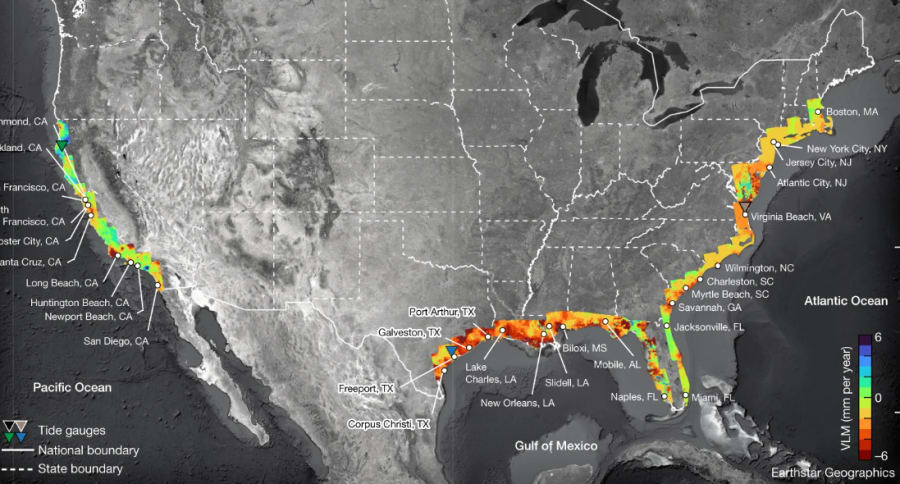JACKSONVILLE, Fla. – Startling projections predict hundreds of thousands of homes could be underwater in just a few decades, with the Jacksonville area at high risk for continued sea level rise.
New research from Virginia Tech and partners found more than 500,000 people across the U.S. could be affected by sea-level rise by 2050. That may seem far away, but it’s only 26 years from now.
Hurricane Irma in 2017 left much of downtown Jacksonville and surrounding neighborhoods underwater. Even after the storm passed through, flooding continued for days. It was a sobering reminder of what happens when waters creep up.
MORE: Florida is one of states most at-risk as financial costs of climate change climb
The new report suggests the problems will only get worse over time. Even when there isn’t a strong storm, sunny day and tidal flooding will cause significant damage.
Miami and Savannah seem to be in the worst danger, but Jacksonville also has a large risk, especially along the waterways and wetlands. Coastal communities from Texas to Massachusetts are in a bad spot, cities labeled as sinking.

“And you don’t have to look too far back in time. The water level in the Atlantic has risen over 6 1/2 inches since 1960. And when you look at the amount of flood days hitting Mayport, that just increased threefold since 2013,” said News4JAX Meteorologist Mark Collins.
Collins said the changes are real and concerning.
“It’s definitely man-made. There’s no doubt about it,” Collins said.
An increase in carbon and greenhouse gases, caused in part by transportation, manufacturing, and excessive energy use, makes a damaging combination.
RELATED: Study says since 1979 climate change has made heat waves last longer, spike hotter, hurt more people
Experts say we have to prepare for the future, maybe not build in the most flood-prone areas and if we are building, do it to better standards. They recommend making our homes and businesses higher up and stronger, and also working on better infrastructure, the things underground that deal with drainage and flooding.
Scientists say while it’s hard to slow down climate change or reverse it, it takes everyone to cut down on energy use and keep the planet clean.
News4JAX recently went to South Florida to speak with one of the world’s leading sea level rise researchers about this subject and he found a coastal city with solutions to flooding problems. You can watch the in-depth report in our Solutionaries series on YouTube.

